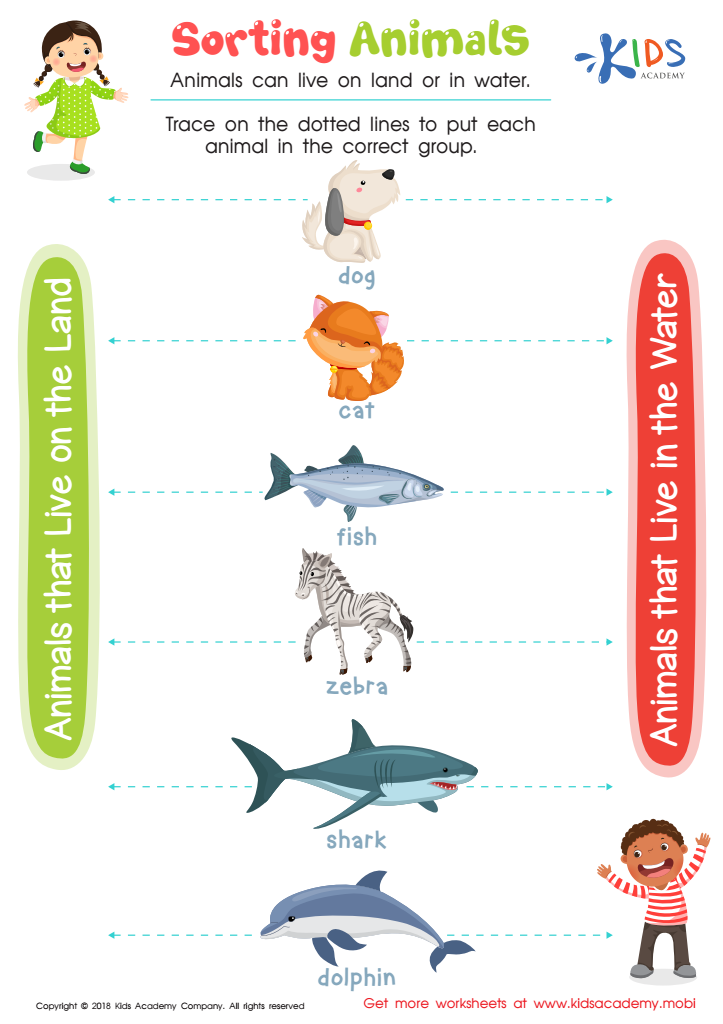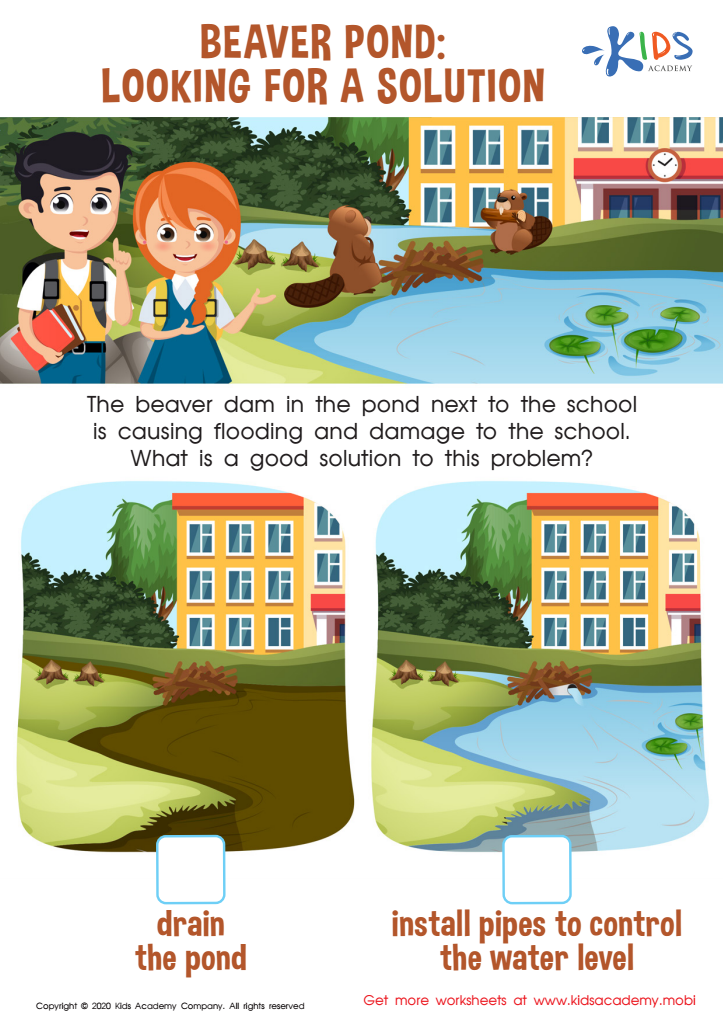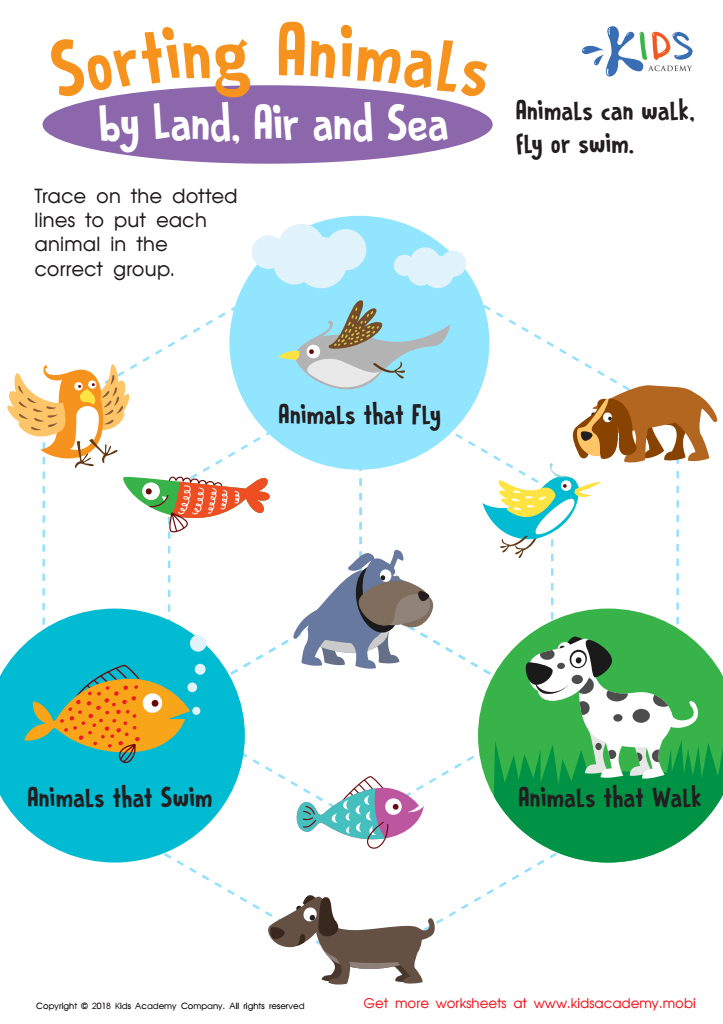Understanding habitats Science Worksheets for Ages 4-6
5 filtered results
-
From - To
Explore the exciting world of animal habitats with our "Understanding Habitats" science worksheets, designed specifically for ages 4-6. These engaging and educational printables guide young students through various environments, from forests and oceans to deserts and wetlands. Children will enhance their learning skills by identifying animals, matching them to their correct habitats, and understanding the basic needs of living organisms. Ideal for early grade learners, these worksheets make discovering nature interactive and fun, fostering a love for science from a young age. Invest in your child's education today with Kids Academy's high-quality, age-appropriate science worksheets.


Sorting Animals Worksheet


Space: Assessment 1 Worksheet


Beaver Pond: Looking for a Solution Worksheet


Sorting Animals by Land, Air and Sea Worksheet


Animals and Plants: Assessment 2 Worksheet
Understanding habitats is crucial for young children because it nurtures their natural curiosity, builds foundational knowledge, and promotes responsible stewardship of the environment. At ages 4-6, children are forming their understanding of the world around them, and learning about habitats helps introduce them to the diversity of life on Earth in a tangible and engaging way. Exploring different habitats, such as forests, oceans, or deserts, helps kids develop critical thinking skills as they observe and compare the organisms that live there and their adaptations.
Such early exposure also instills an appreciation and respect for nature. This is fundamentally important as they grow; an environmentally-conscious mindset established during these formative years can influence sustainable behaviors and attitudes throughout their lives. Learning about how plants, animals, and environments interconnect encourages empathy towards living organisms and highlights the importance of conservation efforts.
Moreover, understanding habitats aligns with educational curriculums and stimulates cognitive development, linguistic skills, and scientific inquiry. When parents and teachers prioritize this area of science, they are fostering a holistic, engaging, and well-rounded educational experience that can spark a lifelong interest in the natural sciences and a deeper understanding of the importance of ecological balance and biodiversity.
 Assign to My Students
Assign to My Students





















